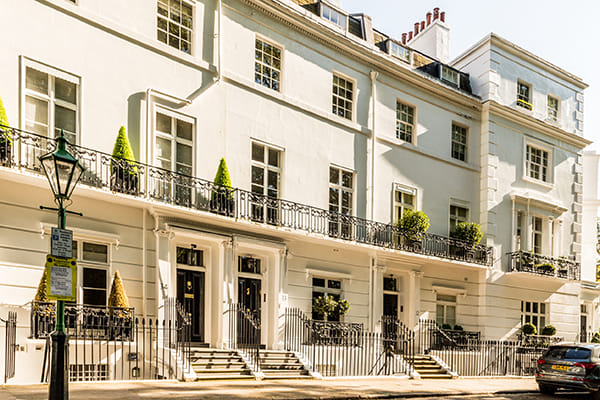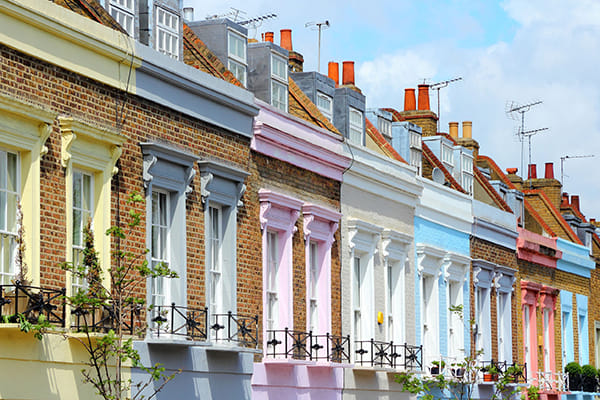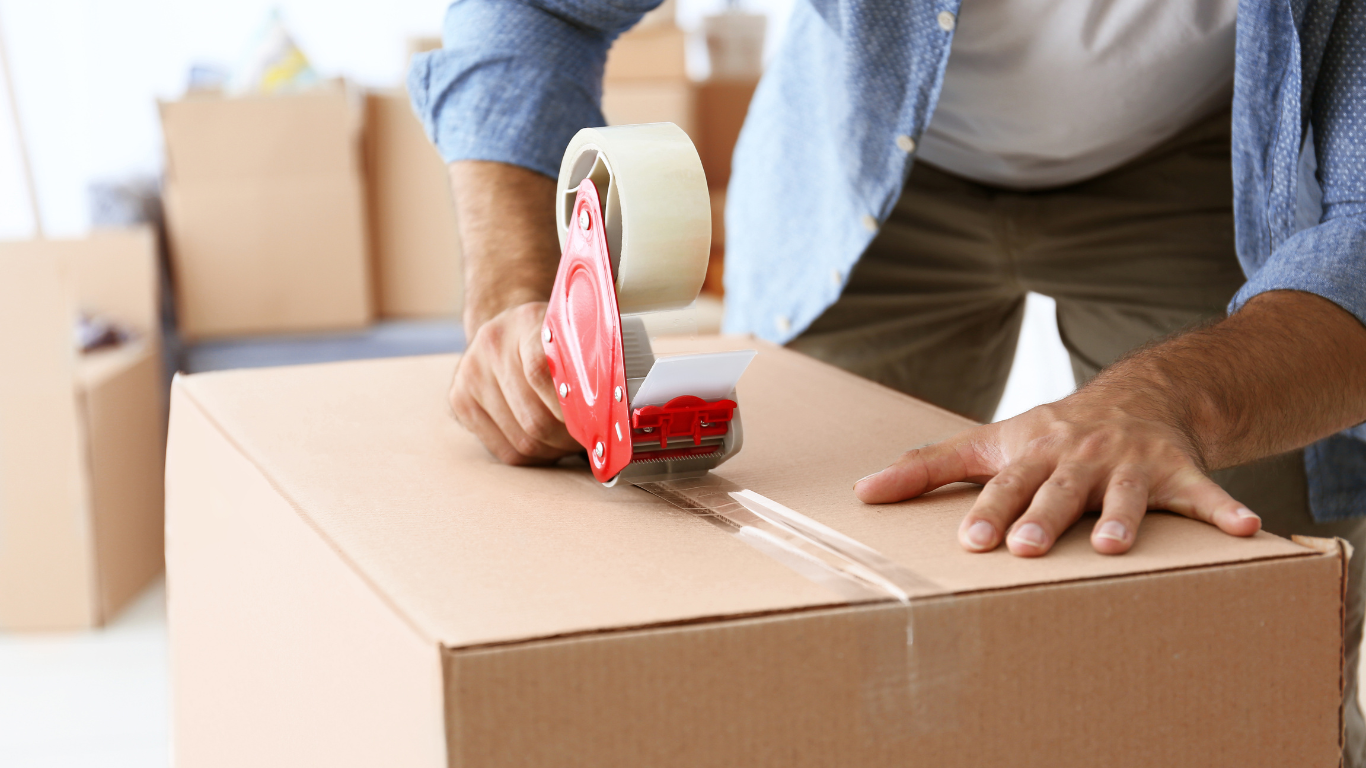
Tip 1: Finding a property
Finding a property in the UK can be complex, as it’s a market you’re not familiar with and you may not know where to start. Firstly, you need to decide on an area, so somewhere near to where you might be working, or might have friends, or is just near somewhere that you’d like to be. If you have a job, it’s advisable to check on the travelling options and times, to get to where you need to be. You also need to decide on things such as: what sort of property, how many bedrooms, distance from Public Transport systems, availability of outside space, parking, etc. Once you’ve decided on these criteria, the most widely used platforms to use to search for properties, Rightmove for example, so that’s where you start.
Tip 2: Setting out a search strategy
There are numerous ways to go about the search, but we'll focus on three options, for this article.
Searching before you leave your home country:
You can start searching before you leave your home country, by searching on the portals mentioned above and trying to arrange virtual viewings, but you might find it hard getting real estate agents to assist you if you don’t yet have all the paperwork to confirm that you have the right-to-rent in the UK. They’ll likely want to see your VISA, as well as various other documents, to confirm your eligibility to rent. So, while you may not be able to have viewings, you will be able to view property details online and possibly the odd video too, that will give you the general idea. Remember that anything that you view too far ahead of your arrival, is not guaranteed to be available for you when you arrive, as one normally starts looking around 3 to 4 weeks before the date you intend on taking occupation, but the research can start earlier.
Waiting until you land in the UK
There are also complications with this strategy, because then you need somewhere to stay when you arrive in the UK, to allow you time to go and view properties and search for the right property. Typically, the search can take around 2 to 3 weeks. Ideally you have family or friends or you can make use of various short-term rental property platforms/services to look for a small apartment, with a kitchen, because if you’re in a hotel room, then it’s fast food/restaurants for every meal, which isn’t ideal. Just remember to factor in the quarantine period, should that apply to you, at your time of arriving in the UK.
Making use of a search/buying agent
These are agents who are instructed by you and represent you, as the buyer/tenant, that search on your behalf and make recommendations, deal with the local agents, as well as possibly conduct some virtual viewings for you, where agreed, as this can take out a lot of the legwork for you and save you some time. It can be useful to have someone on the ground, to do what’s needed, when you can't be there. It's important to remember that when you’re dealing with the seller's real estate agent, while they may be assisting you, their loyalties lie with the seller (the seller is referred to as the vendor here) and their job is to get the maximum price for the property and get you to commit.

Tip 3: The short list
Once you’ve compiled your list of properties, the next step is to go through the properties on the list whittle the list down to the ones you want to physically see and then take the steps to set up viewings. I always try to view at least 20 properties in different areas, to get an understanding of the values and what’s available in a new market, to try and get a feel for that market and an understanding of the options.
It's complicated to understand the values if you don't have experience in that market, but there are ways to get a feeling, but I'll write a separate article about some of the things that you can do, to research and estimate reasonable values.
There’s more accuracy available in the buying process, because you can make use of property survey services, to get a surveyor (valuer in SA) to come and inspect the property, after your offer has been accepted, but before it’s legally binding on you, but the complication here is the cost of the survey, as it ranges from around £400 to £900 and you may end up requiring more than 1. The risks to not using a survey, is that you could overpay by tens of thousands of Pounds.
Tip 4: Rent before you buy
When searching for a new home, in a new market, I personally advocate renting initially, when you’ve just arrived, as you’re unlikely to have enough information to effectively choose the perfect home and area, after only a short stint of looking. It’s easier if you've lived in the UK before and you are going back to the same area, otherwise it takes time to figure out where you want to settle.
The processes for the search of a property to rent or buy are more-or-less the same, although the buying process will likely take longer, because the costs involved are higher, so more due diligence should be carried out. For this article, we'll assume that you've decided to rent a property.

Tip 5: Signing the lease
Once you’ve successfully found the right property and you’re happy to proceed, my suggestion is to refrain (if possible) from signing a lease longer than 6 months on your first rental property, because time can go by very slowly if you make a bad decision, only to find out that there are things about the property/area/neighbours that you weren't aware of, when you signed the lease. You could also sign a one year lease, with a 6-month break clause (subject to Landlord's acceptance), which will allow you to get out of the lease, without penalty, after 6 months, if circumstances change, or you find that you'd rather be living somewhere else. It’s also interesting to note that a lease offer isn’t binding in the UK, until you’ve signed the formal lease document.

Tip 6: Move in day
Once you've signed your lease, it's time to start planning your move. On the day you move into your rental property, you should check your electricity and gas meters, where applicable and take photos of the readings, so that you can supply those readings to the relevant utility suppliers, to ensure that you're only billed for your usage, from your date of occupation and that there's no carried forward balance from previous occupiers that need reconciling. These figures are normally estimated anyway, by the utility supplier and they factor in your move-in date, but it's best to be sure and know the readings when you move in.
Tip 7: Arranging accounts for utilities in your name
The next thing you need to do, is to register the accounts for gas / electricity / water and Council Tax (that’s right, in the UK, as a tenant, you pay the Council Tax yourself and this isn’t paid by the Landlord), for the property into your own name. In most cases, the relevant supplier will send an invoice to your address, addressed to The Occupier, within a few weeks of your move-in date, reflecting the balance owed by you, which will give you the contact details and relevant account numbers, to enable you to contact them and have the accounts moved into your name.
Tip 8: Registering with a GP
You’ll also need to get registered with an NHS GP in the area that you settle, as this is a requirement so that you have a GP appointed. You won’t be seen by an NHS doctor until you have registered, so it’s best to get this done as soon as possible. You’ll likely have paid towards that service, along with your VISA, when it’s finally approved.
Tip 9: The job hunt
If you haven't already organised a job, then it's time to start that process and it’s advisable to get your CV adapted for the UK market. There are many Career Consultants and CV writers that can assist with that. You also need to get your LinkedIn profile spruced up and looking professional if you haven't already done that, because that's an integral part of the working 1st world. There are many job sites that you can register on, including sites such as Reed for example, and most of them will allow you to upload a profile, with your CV, etc. and search for available jobs.

Tip 10: The BRP card
You will have made arrangements to receive your Biometric-Residence-Permit (BRP) from a Post Office close to where you intended on staying, after you arrived, so make sure that you collect the card timeously, to avoid delays, as you’ll need the card for almost everything. The card typically arrives around 10 days after you’ve entered the country and they hold it at the Post Office for a couple of weeks.
Tip 11: Your National Insurance number
Some BRP cards might have your National Insurance number printed on the back, but if not, you’ll need to make an application for one, as your employer will require it. National insurance is what you pay for various Government benefits, like State Pension, etc.

Tip 12: Getting your UK driving licence
When you've resided in the UK for at least 185 days, you’ll become eligible to apply for a UK driving licence. If you’re fortunate and you happen to have a foreign driving licence from a designated country, you’ll be able to exchange your foreign driving licence for the UK driving licence (subject to terms and conditions and a nominal fee) and then you’re all set up. Just remember though, if you’re from a ‘designated country’ then you’re allowed to drive on your own licence for 12 months and thereafter you have five years in which to switch over to a UK driving licence without additional tests, provided your licence is still valid – you don’t want your licence to expire before you’ve exchanged it for a UK one.
Tip 13: Car Insurance
It’s also important to note that your car insurance premiums will be much higher, while you’re driving on a non-UK driving licence – sometimes up to 3 times more expensive. Now you’re all set up and making inroads and the little nitty gritty bits and pieces have been taken care of.


